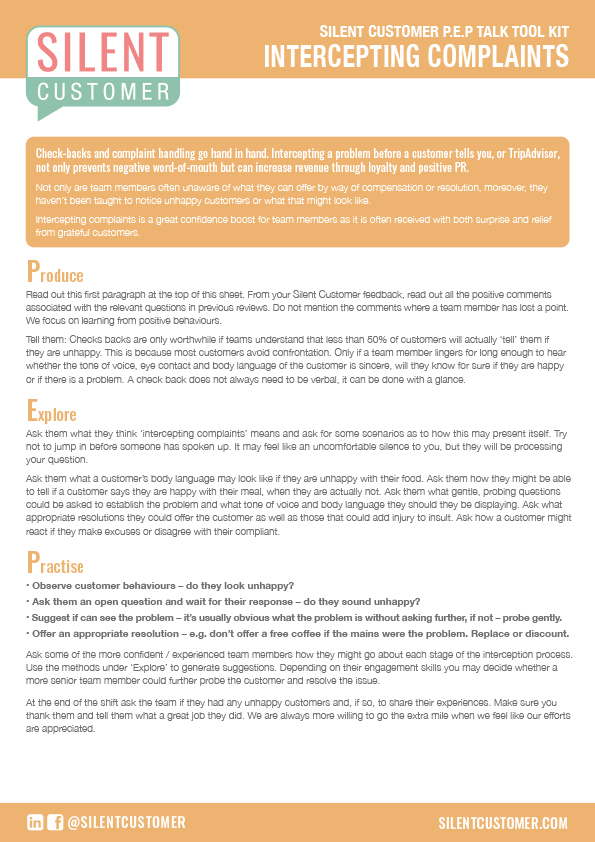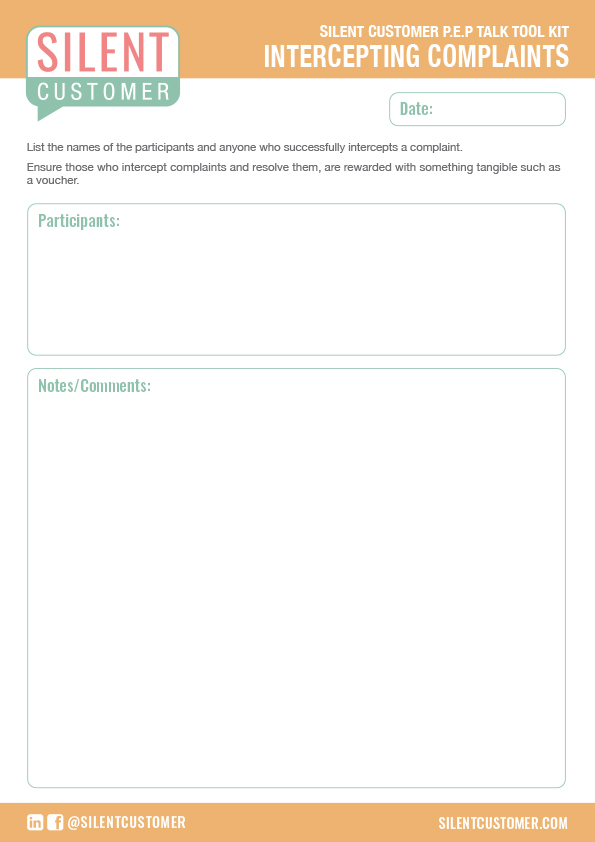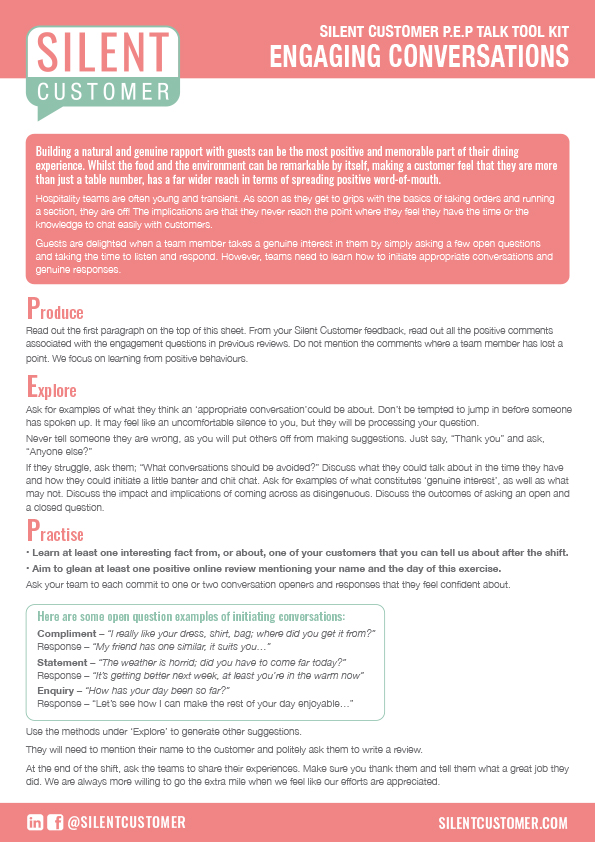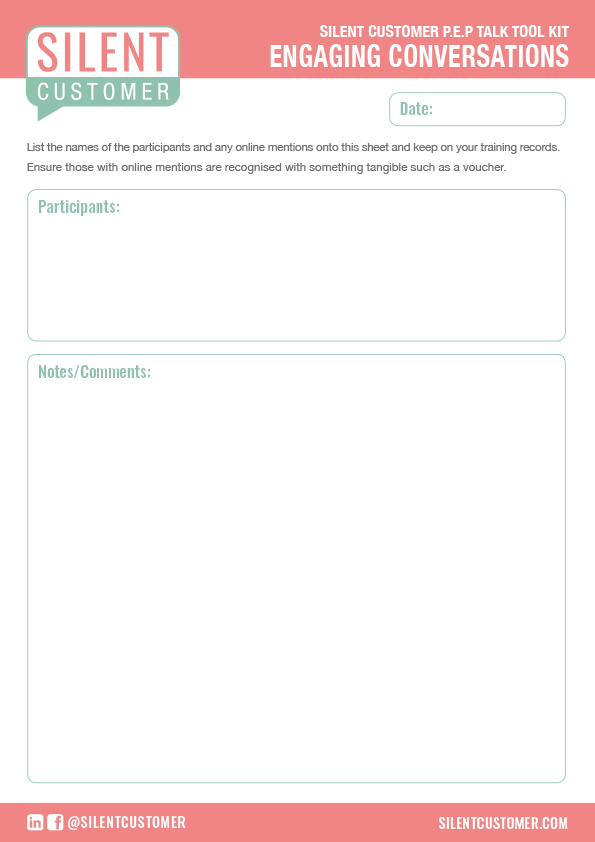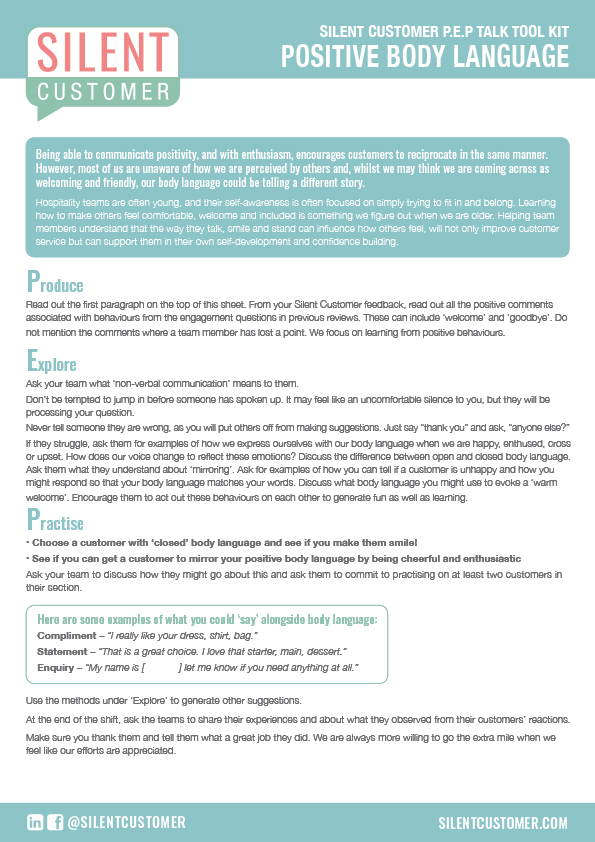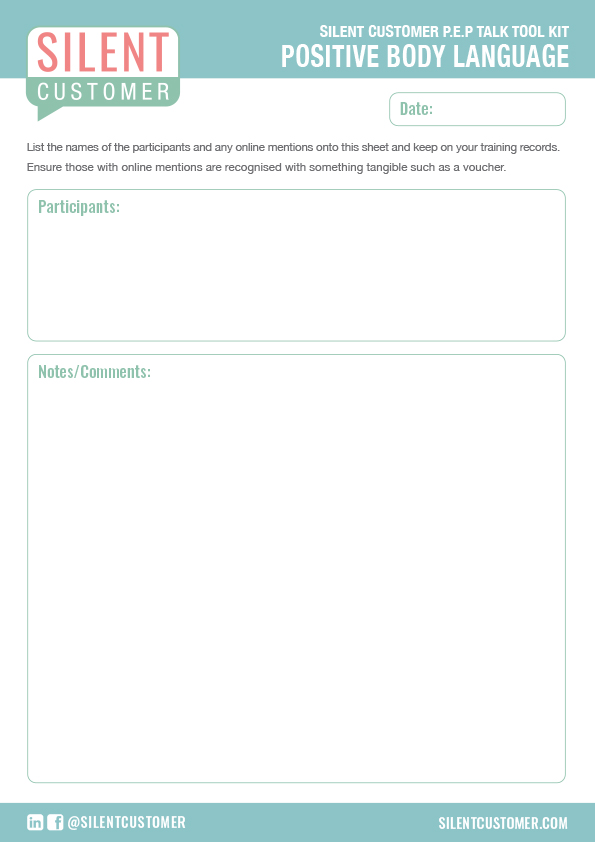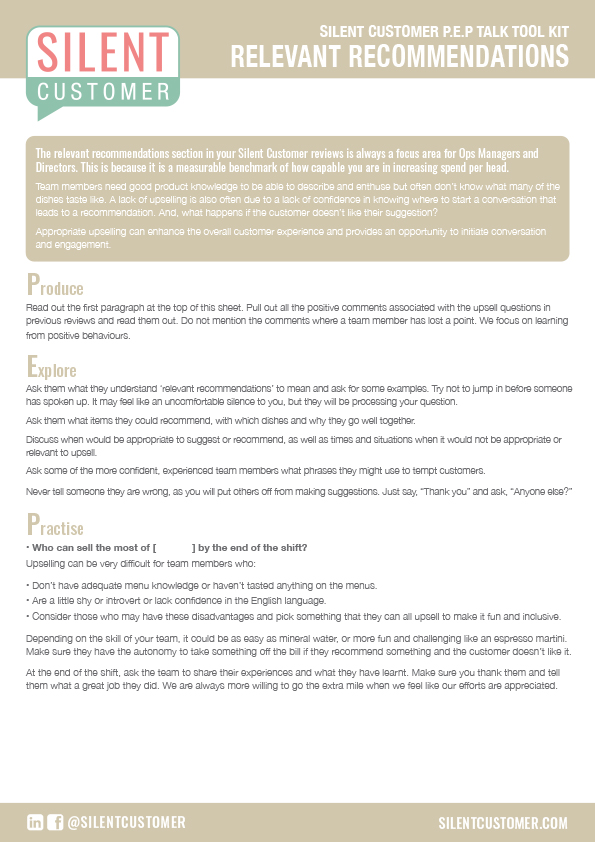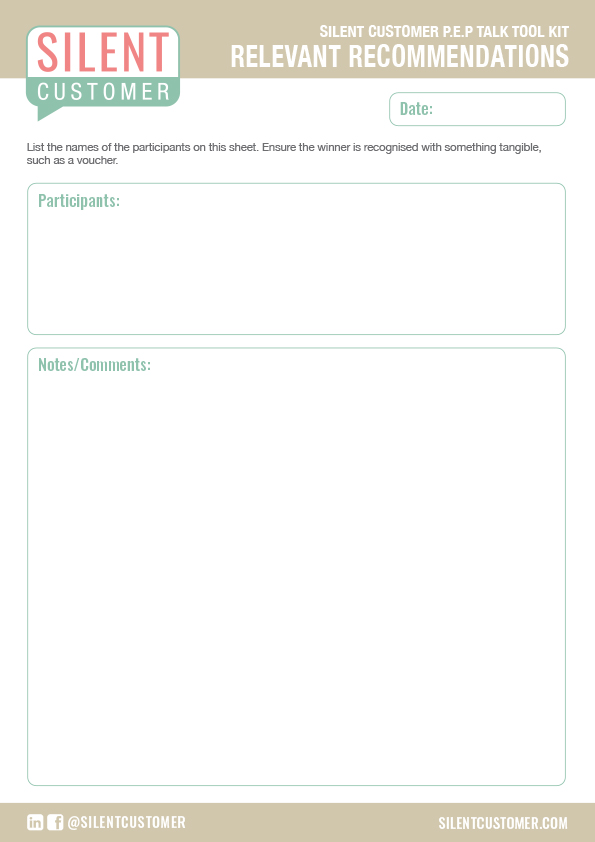Top Tips for Mystery Shoppers
Top Tips for Mystery Shoppers'
How to be one of our top rated Silent Customers
We favour Silent Customers whose reports need the fewest edits, because that helps us give the best service to our clients and return approved reports to them quickly.
You can view your average grading on your home page. After we’ve reviewed your report, we’ll send you an email with the grading for that report and some brief written feedback. We can’t give you details of every single edit we make – it would take too long – but we try to highlight specific ways to improve your next report as well as things you did well.
The grading system helps us choose the most proficient Silent Customers for future visits. If our editors mark you down it’s not because they are mean or harsh: it just reflects the amount of time and effort they’ve spent on corrections and changes.
Each of the 10 grading categories are marked 3 – 0 (Excellent, Good, Fair, Poor). An average score of 90% is classed as good although we love to get accurate and comprehensive reports so we can give you full marks!
This is how accurately you read and follow instructions. Please read all the information on your Summary Info, Briefing Sheet and/or the questions carefully before you go, so that you don’t forget to check something, forget to order something or go to the wrong venue or at the wrong time of day.
Most Silent Customers miss points on this grading. Please check for typos and misspellings before you submit your review. Make sure you use punctuation, so that when you read it back to yourself, your writing makes sense. Write in complete sentences and use capitals at the beginning and full stops at the end.
We need you to give reasons for your YES or NO answers, especially, if you have marked them down for something. Use the comment boxes to explain what happened, so we and the client can see that your mark is fair.
Example
Question – Were you offered coffee? Answer – “No”
Poor comment – “I was not offered coffee”. – This does not tell us whether you had asked for it ahead of them having the opportunity to offer it to you, or if they didn’t have any coffee available, or if they just forgot to offer it to you. If you had asked for coffee before they had the opportunity to offer it to you, it would be unfair to mark them down.
Good comment – “No-one offered coffee when they took the dessert order. After our dessert plates were cleared, I waited to see if they would offer but the waitress went away. I then went to the bar to ask for coffees”.
Making drastic changes isn’t within the power of managers and tenants. Suggesting structural changes to buildings or other costly alterations is unrealistic.
Don’t write that something is against statutory or legal regulations. You’re there as an ordinary customer. Even if you have the professional qualifications to make such comments, you can’t produce your credentials, because Silent Customers are anonymous. Comment on what you see and experience as if you were a bona fide diner or drinker.
Please don’t mark down on the basis of a personal, subjective opinion.
Example
Question – Were the staff appropriately dressed? Answer – “No”
Poor comment – “They looked scruffy!” – Your opinion of what is scruffy might be different from mine. You need to describe what you saw.
Good comment – “The waiter was wearing ripped jeans and a dirty light blue tee shirt”. – Your editor will agree that this doesn’t constitute appropriate dress. If you had said that the waiter wasn’t wearing a tie with his suit, that’s a different definition of scruffy or inappropriate. With that information, we could decide whether your answer of ‘No’ was fair.
It’s hard to take a positive tone when you’ve had a bad experience in service or food. But that’s what we have to do. Remember that you have been invited, at the expense of the client, to review their business. They welcome honest feedback and don’t expect every visit to be perfect, but they do reasonably expect that you’ll explain what happened objectively and without vitriol and sarcasm.
Keep in mind that not only the management team but the staff themselves will read the report. We believe that nobody who runs a pub or restaurant goes to work to do a bad job or disappoint customers. They’re working hard in an often tough and pressured job and believe they’re doing their best.
Be honest and sincere, but think about how you’d deliver the feedback to the manager or owner face to face. If you wouldn’t say it that way, don’t write it that way.
If you mark down, explain neutrally what happened and make a positive statement about what could have been a better way to do it:
Good comment: ‘I would have liked the waiter to make eye contact and greet me immediately’
Poor comment: ‘I was disappointed that the waiter ignored me when I arrived.’
“Could” is often easier to accept than “should” in feedback and makes statements feel less judgmental.
Good comment: ‘The waiter could have cleared the table more quickly’
Poor comment: ‘The waiter should have cleared the table more quickly.’
Silent Customers are motivators not critics. Our language and choice of wording needs to show that. If something is wrong, you don’t need to repeat it, use harsh words or let it colour the rest of your review. You don’t need to say you were ‘disappointed’ when you describe a fault – it feels too disapproving. We are there to observe and report.
Just because it says ‘min 150 characters’ does not mean that’s all you need to say. We want you to describe your experience clearly. Write as much as you need to explain what happened or what you’d like to have happened.
There’s no need to pad it out with repetition or unsupported personal opinion. Don’t just retype what it says in the question to make up the words.
Do not be tempted to use AI to pad it out either as these programmes are not yet sophisticated enough to know how to interpret the human experience in context and the result is usually over exaggerated, fantastical feedback which invalidates the actual human experience and therefore the entire survey.
Use a variety of language to describe your experiences and to make your feedback objective and interesting to read. A good tip is to read out loud what you’ve written – it should sound fluent, natural and genuine.
Using basic adjectives such as ‘nice’ and ‘tasty’ in every sentence comes across as, unsophisticated, lazy and childlike. Also, without an explanation for why you have used these adjectives they are superfluous since ‘nice’ to one person could mean ‘average’ to another or ‘ delicious’ to another depending on your own filters of interpretation.
Conversely, using AI programmes to embellish or interpret your narrative usually results in overly effusive, and often, ludicrous, flowery, descriptions of something that is very ordinary such as a basic burger or a perfunctory service interaction. This then bears no relation to the real human experience and is perceived as fantastical by the recipient and invalidates the entire survey. When you read it back, ask yourself, does this reflect my actual experience? Does it describe what I really felt, tasted and experienced? If the answer is ‘no’ then re-write it in your own words.
AI is not yet sophisticated enough to know how to interpret the human experience in context. Please be aware that our editors will ask you to re- write your report and will mark you down if your feedback is overly effusive. We do not need to use AI detectors to make this assessment.
Check dates, times and amounts are accurate and images are of good quality, and the right-way-up, before you submit your report.
Make sure you know what photos you need to take before you go on the visit – and that your phone is charged up! Email them to yourself to avoid losing them.
Do not take pictures of children or anywhere near children if you are alone with them. Avoid, where possible, including people in your photos and do not take pictures of people where their faces or identities can be recognised.
Phone cameras have a time stamp on them. Please be honest about the time you arrived at the venue, as we can see when the pictures were taken.
If you forget to take a photo, do NOT be tempted to upload one from a website. If we do not pick up on it, then the client may do, which will invalidate the integrity of your entire survey.
All answers need to correlate with comments in all other parts of the survey. If you answer all the questions about housekeeping positively with YES, then later say that you would have liked the venue to have been cleaner in the overall impressions section, that’s contradictory.
Check your answers are consistent and support your summaries at the end of the survey.
You need to submit your survey within 24 hours of your actual visit. Please let us know if your report is going to be later than this – before we need to chase you.
Once you have submitted it to us, please keep an eye out in your inbox in case we have sent it back with queries. We will need you to make the requested edits and re-submit it the same day so that we have time to check it again before we send it to our client.

